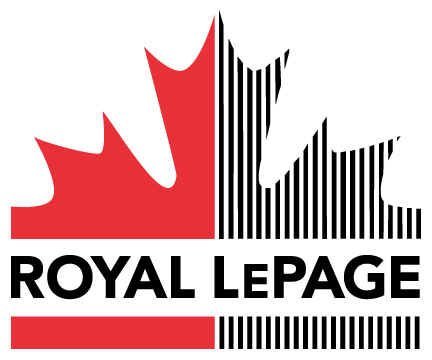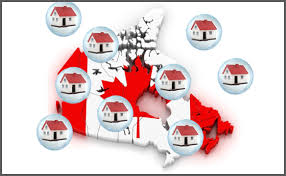Royal LePage shares expectations for home prices in 2017
Posted by Steve Harmer on Tuesday, January 24th, 2017 at 11:25am.
 2017 Royal LePage real estate forecast
2017 Royal LePage real estate forecast
Canada’s residential real estate market saw significant year-over-year home price appreciation in the fourth quarter of 2016, supported by considerable gains in the Greater Toronto Area (GTA) and Greater Vancouver, according to the latest Royal LePage House Price Survey and Market Survey Forecast.
The prediction for 2017 isn't as dire as some experts would have you believe; in the year ahead, Royal LePage expects the regional extremes in house price appreciation to narrow in 2017, primarily due to a price correction in the Greater Vancouver housing market, strong but moderating price appreciation in the GTA, and welcomed upward price trends in Quebec, Atlantic Canada and Alberta.
“The disparity in home price appreciation between Canadian regions has never been greater than that seen in 2016, with rates ranging from double-digit extremes in some cities to negative growth in others,” said Phil Soper, president and CEO of Royal LePage. “This economic drama put real estate at the forefront of everybody’s mind last year, from the Prime Minister to the recent grad. In 2017, we anticipate a movement away from the regional extremes of real estate feast and famine – and that is a very good thing.”
Royal LePage expects the home prices in Vancouver to drop -- not catastrophically, but to levels not seen since April 2016.
 “While the cost of a home in Greater Vancouver will remain the highest in the country, a modest price reset will provide much needed relief in the Lower Mainland and help reignite overall buyer activity in the region,” continued Soper. “Unlike Vancouver where a price correction is underway, there is no relief in sight for the GTA – forward momentum and supporting fundamentals in the region are that strong. And it is worth noting, Toronto area home prices are much lower than those on the west coast.”
“While the cost of a home in Greater Vancouver will remain the highest in the country, a modest price reset will provide much needed relief in the Lower Mainland and help reignite overall buyer activity in the region,” continued Soper. “Unlike Vancouver where a price correction is underway, there is no relief in sight for the GTA – forward momentum and supporting fundamentals in the region are that strong. And it is worth noting, Toronto area home prices are much lower than those on the west coast.”
According to the Conference Board of Canada, Vancouver will have the strongest economic growth among Canadian cities in 2017, led by the construction, finance, insurance, transportation, warehousing and real estate industries. However, the true repercussions of the latest initiatives to cool the housing market there are expected to truly be felt in 2017, and Royal LePage expects Greater Vancouver’s housing market to see a high single-digit price correction this year.
Some forecasters are projecting a return to positive growth for Alberta in 2017 which will be supportive to the province’s residential housing sector, and Soper also says that Royal LePage agrees; they anticipate the worst of the economic slump being over for Albertans as the energy industry heads back into growth mode. Year-over-year home prices in Calgary and Edmonton fell slightly to $460,837 and $378,247 respectively, but are trending up on a quarter-by-quarter basis, a trend that shows good signs of continuing in 2017.
In Saskatchewan, agriculture was the saving grace of the province in 2016, and although economic growth in the region is likely to be positive in 2017, but slightly below the Canadian average, home prices are expected to remain relatively flat in the Regina and Saskatoon.
Home prices in Winnipeg rose to $289,017, and no surprises are expected from Manitoba as a whole in 2017, with the province on track for economic expansion, supported by strong manufacturing, wholesale and retail trade along with residential and commercial construction activity. The region is forecasted to see low single-digit house price appreciation in 2017.
 CLICK HERE TO TRY OUR FREE ONLINE HOME VALUATION TOOL
CLICK HERE TO TRY OUR FREE ONLINE HOME VALUATION TOOL
Like British Columbia, the Ontario economy is expanding at breakneck speed, benefitting from the U.S. economy and a weak Canadian dollar, which is good for exports. Ontario employment grew by 1.2 per cent in 2016, and the labour market has meant consumer income growth and the continued rapid expansion of the province’s housing market – particularly in the GTA. As fast as the GTA housing market is moving, however, the biggest story is on the outskirts: The surrounding suburbs such as Richmond Hill, Oshawa, Whitby and Vaughan saw home price increases of 30.1 per cent, 26.9 per cent, 21.3 per cent and 19.9 percent to $1,138,826, $471,957, $610,658 and $927,371, respectively. The aggregate home price in the GTA “only” rose 16.1 per cent to $720,761. Ontario's major housing markets are expected to see continued price appreciation in the year to come, led by double-digit home price increases in the GTA.
 Royal LePage forecasts that the aggregate house price in the GTA will increase by 10 per cent to $793,000.
Royal LePage forecasts that the aggregate house price in the GTA will increase by 10 per cent to $793,000.
“The Greater Toronto Area will to continue to see strong, albeit more gradual double-digit growth in 2017," said Dianne Usher, senior vice president, Johnston and Daniel, a division of Royal LePage. “While many believe that we may be reaching a breaking point in the region, factors driving the market will likely remain unchanged in the new year. Demand will continue to feast upon supply with interest rates and supportive economic conditions continuing to spur competition within the marketplace, ratcheting up prices and intensifying inventory shortages across the region.”
The momentum that Quebec’s economy showed in 2016 is expected to continue into 2017. Quebec has been more successful than most provinces in eliminating its deficit, which may result in stimulus spending in the next few years, providing an additional positive boost for the economy. The Conference Board of Canada has forecasted that in 2017 the economies of Montreal and Quebec City will expand more quickly than the national average for the first time since 2009. In addition, Montreal is expected to start a number of new infrastructure projects in 2017 – those projects combined with the city’s 375th anniversary is expected to attract tourism throughout the year, particularly in the downtown core. In 2017, Montreal is expected to see healthy home price gains in the mid-single-digit range as economic strength in the region continues.
Energy price declines hit Atlantic Canada hard, and the Newfoundland and Labrador government expects the province to contract in 2017. Even so, the aggregate price of a home in St. John’s only fell a modest 1.5 per cent year-over-year in the fourth quarter to $334,782, and home prices in New Brunswick, Nova Scotia and Prince Edward Island all saw home price increases in their major cities. Fredericton and Saint John posted by far the highest home price increases in the region at 10.4 per cent to $257,092 and 13.4 per cent to $230,405, respectively, while Moncton prices remained relatively flat, rising 0.3 per cent to $191,678. During the same period, Halifax and Charlottetown saw healthy home price increases, with the aggregate price of a home in Halifax increasing 4.3 per cent year-over-year to $310,656, while the aggregate price of a home in Charlottetown rose 3.2 per cent to $228,706. In contrast to Newfoundland and Labrador which is projected to see further economic and home price declines in 2017, New Brunswick, Nova Scotia and Prince Edward Island are expected to achieve economic growth in the coming year, along with continued residential housing market gains.
© http://www.whichmortgage.ca/article/royal-lepage-shares-expectations-for-home-prices-in-2017-219480.aspx

